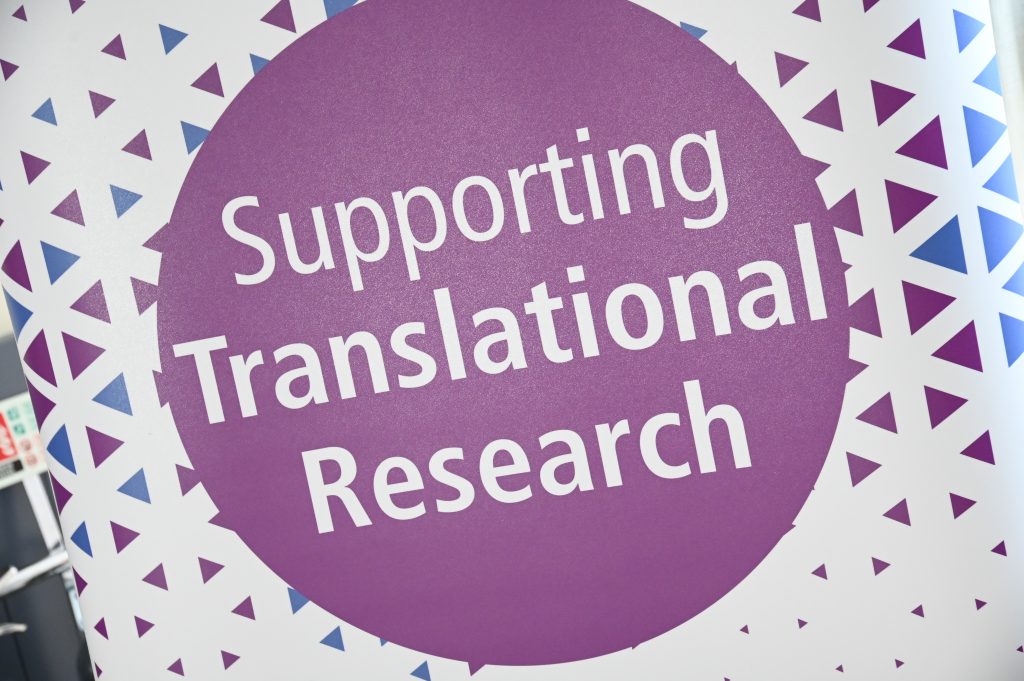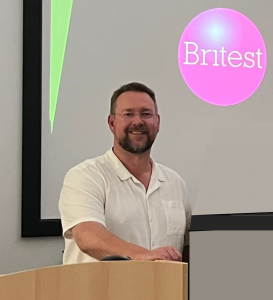
Case study of A Secondment Supported By Translation Manchester and funded by the Flexible Talent Mobility Account (FTMA) Award: Dr Kirk Malone
In 2022, Translation Manchester applied for and awarded the BBSRC Flexible Talent Mobility Account (FTMA), which included £100,000 in funding to be utilised between January and March 2023. The aim of FTMA was to fund opportunities aimed at supporting the mobility and training of researchers, technicians, and other research professionals (e.g. knowledge exchange and commercialisation professionals).
Translation Manchester used the FTMA funds to support various activities including:
- Training and development of early career researchers (ECR) on topics such as industry engagement, consultancy training and bioinformatics training
- Secondments, travel grants and international visits for ECRs and research technology professionals

Dr Kirk Malone
All funds were awarded via a competitive process. As a successful applicant of our BBSRC Flexible Talent Mobility Account (FTMA) scheme, Dr Kirk Malone, who at the time was Director of Commercialisation of the Manchester Institute of Biotechnology (MIB), received funding for a part-time placement at Britest Limited.
Britest is a UK-based company that utilises innovative tools and methodologies to support sustainable process design. The company works internationally with organisations across the chemicals, materials, biotechnology and pharmaceuticals sectors, providing training and consultancy services to enable sustainable operations through better process understanding.
His placement involved him facilitating the transfer of biotechnology and biomanufacturing knowledge into new sustainable bioproduction methodologies. Specifically, his role aligned with the BBSRC’s strategic challenge of “bioscience for renewable resources and clean growth”, especially “novel, bio-based and low carbon manufacturing processes” and “the production of more sustainable products”.
He was able to explore synergies between Britest’s technical approach, MIB’s research base and prospective industrial partners. In his testimonial he mentioned the work enabled him “to gain an understanding of Britest’s internal innovation programme and this helped support cross disciplinary training within the MIB”.
 The knowledge transfer he engaged in further allowed for the development of collaborative efforts between the MIB and the Future Biomanufacturing Research Hub (Future BRH). So much so, this had prompted follow-on collaborations with the MIB, involving training, and support of research and innovation activities. In his testimonial, Dr Malone also highlighted how this further supported his training in commercialisation. He was able to aid in the development of future foundations for scale up and translational activities of the Future BRH. Through this facilitation of knowledge transfer, he was able to enhance his own expertise to a higher technical level.
The knowledge transfer he engaged in further allowed for the development of collaborative efforts between the MIB and the Future Biomanufacturing Research Hub (Future BRH). So much so, this had prompted follow-on collaborations with the MIB, involving training, and support of research and innovation activities. In his testimonial, Dr Malone also highlighted how this further supported his training in commercialisation. He was able to aid in the development of future foundations for scale up and translational activities of the Future BRH. Through this facilitation of knowledge transfer, he was able to enhance his own expertise to a higher technical level.
“Mobility funding schemes de-risk the translation to industry, allowing individuals to experience the reality of a different working environment without having to do a ‘big jump into the unknown"
Kirk Malone
Not only did the FTMA placement help Dr Malone co-author a successful £4.9 million application for a Place-Based Impact Acceleration Account (PI: Professor Aline Miller) but it also helped progress his career as he went on to become Britest’s Commercial Director. He specifically mentioned “The FTMA award directly contributed to me getting offered a job at Britest as their Commercial Director” in May 2023, which he was grateful for and stated in his testimonial ‘Translation Manchester did a great job!’. Since then, Dr Malone has further progressed into becoming Britest’s Chief Executive Officer in April 2024. We were delighted to hear this from Kirk!
His experience as a successful applicant of the FTMA scheme exceptionally highlights the opportunities at the interface of academia and industry. His professional development showcases how the two sectors may work in tandem to develop skills and innovative solutions to global impact challenges.
During an interview with Dr Malone, we asked him what his best piece of advice for those considering transition from academia to industry. Kirk advised: “I would encourage anyone in University thinking of a change of career direction to consider mobility funding schemes like the FTMA. They de-risk the translation to industry, allowing individuals to experience the reality of a different working environment without having to do a ‘big jump into the unknown’. Such schemes also foster good will between the University and industrial partners, encouraging future collaborations.”
Click on the questions below to reveal the rest of Kirk’s responses from the interview.
We were delighted to hear that the FTMA award had had such a great impact on Kirk’s professional development, and we wish him the best of luck in the rest of his career!
What made you consider a secondment with Britest?
I had a long-standing awareness of Britest through their engagement with the University, and the fact that they were a spin-out from UMIST in 2001. Britest are an industrial partner of the MIB’s Future Manufacturing Research Hub (Future BRH), and from discussions in that context it became clear that there was an opportunity for a two way knowledge transfer – for me to learn about the realities of how a micro-sized SME operates, and for Britest to learn more about innovations in biotechnology.
My entire career at the University of Manchester was predominantly at the interface of academia and industry, initially through my own lab-based research then latterly in support of broader funding and translational activities. The FTMA funding enabled me to develop this experience and learn new skills in a commercial context.
How was the overall experience of the secondment? What were the greatest challenges and how did you overcome them?
The greatest challenge was actually finding a mobility funding scheme that would support myself as a member of Professional Services staff; most schemes seem to be ring-fenced for academics. However, once I had contacted the Translation Manchester team the whole process went smoothly.
What would you say are the main differences between working in academia & working in industry? (e.g. challenges and advantages)
I can answer the question from the context of working for a micro-sized company / SME. You might expect the answer to be a difference in scale – when I joined Britest we became a team of 4 employees, the University of Manchester has thousands of staff! However, the reality is most of my working experience in academia was part of multi-disciplinary teams, so the difference was minimal.
The biggest difference is speed and agility – things happen so much quicker than in academia! As a small company we are not a small cog in a big machine; we can prioritise work to best suit the business (and our Members and Clients).
Challenges in an SME: there are no dedicated support service teams like contracts, finance etc. We have to rely on in-house skills and experience, or pay for external support.
However, the biggest challenge is cash-flow: late-payments, grant payments in arrears, unexpected bills etc., all have an impact on our cash availability. There isn’t the financial security of being part of a large organisation!
Opportunities in an SME: being forced to rely on each other in a small team means decisions and actions are quick! Work is massively varied, and an individual can have a huge impact on how successful the company is.






0 Comments